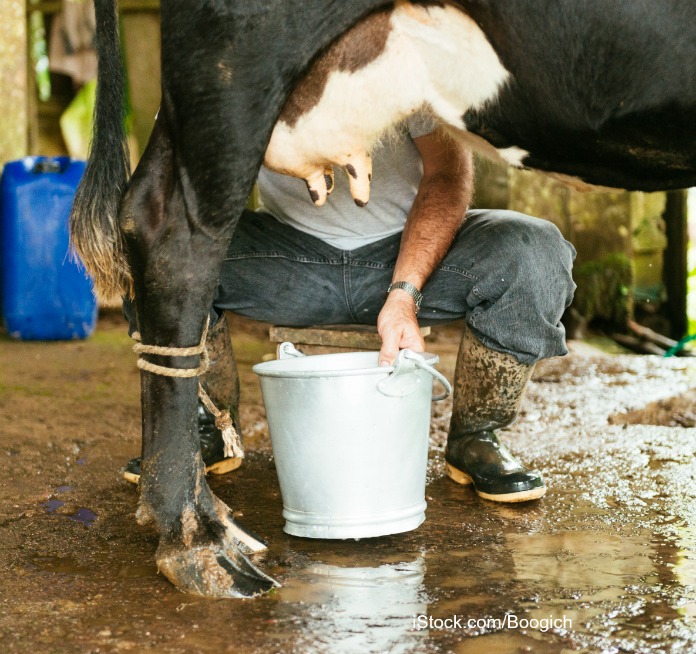According to the Center for Disease Control and Prevention’s (CDC) Emerging Infectious Diseases report for June 2017, unpasteurized milk products cause 840 times more illness and 45 times more hospitalizations than pasteurized milk products. Only about 3.2% of the population consume raw milk, and 1.6% of consumers eat raw cheese, but those products cause 96% of the illnesses linked to contaminated dairy products in this country. The number of states that allow raw milk sales increased to 30 in 2011, from 21 in 2004.

Consumption of unpasteurized dairy products is becoming more popular, and this raises public health concerns. The bacteria in these products that have caused serious illness and death include E. coli, Salmonella, Campylobacter, and Listeria monocytogenes. This increase in raw milk consumption parallels the rise in the popularity of organic and natural foods. But natural and raw products are not safer than conventionally produced products.
There is an ongoing outbreak of listeriosis linked to Vulto Creamery soft raw milk cheeses in the U.S. at this time. As of mid-March 2017, six people in four states have been sickened. All six people were hospitalized, and two people from Connecticut and Vermont died. One illness was reported in a newborn. And there was a Campylobacter outbreak in Ohio last winter linked to Sweet Grass Dairy raw milk, and another Campylobacter outbreak in Pueblo County, Colorado in August and September 2016 that sickened at least 20 people.
Pasteurization has greatly reduced the illnesses associated with dairy products. Before pasteurization, raw cow’s milk caused about 25% of all foodborne illnesses. Now, pasteurized milk products are linked to about 4% of outbreaks caused by dairy alone because the products are contaminated after pasteurization. In addition, the study focused on outbreak-related illnesses, which is only a fraction of all dairy-related illnesses in the U.S. Sporadic illnesses caused by contaminated dairy products might be much larger.
The study estimates the outbreak related disease burden associated with the consumption of fluid cow’s milk and cheese made from cow’s milk that are unpasteurized. The study’s authors used outbreak data from the National Outbreak Reporting System (NORS), which stores data on all foodborne disease outbreaks reported by local, state, and territorial health departments in this country since 2009.
NORS is a passive surveillance system, so underreporting associated with this factor was accounted for by using FoodNet data, an active surveillance system. When estimating underreporting, the researchers assumed that FoodNet were representative of the entire U.S.
The study looked at a total of 87 outbreaks, which caused 750 laboratory-confirmed illnesses and 215 hospitaliZations. Incidence rates of STEC, Salmonella, and Campylobacter illnesses and hospitalizations were higher for unpasteurized dairy product consumers than for pasteurized dairy product consumers. Unpasteurized dairy products caused 96% of these illnesses. Illnesses and hospitalizations cause by Listeria monocytogenes were more often attributed to pasteurized cheese than unpasteurized cheese.
Consumers of unpasteurized milk and cheese are a small proportion of the U.S. population, but compared with consumers of pasteurized dairy products, they are 838.8 times more likely to experience an illness and 45.5 times more likely to be hospitalized. The study shows that illnesses and hospitalizations will rise as consumption of unpasteurized diary products increase. If this consumption were to double, the mean number of outbreak-related illnesses that occur every year would increase by 96%.
Most of the unpasteurized dairy-related outbreaks are caused by pathogen contamination at the dairy farm. STEC has been found in 2.5%, Salmonella in 4.6%, and Listeria monocytogenes in 2.5%, and Campylobacter in 4.7% of bulk milk tanks on U.S. raw milk farms. Because these numbers are so low, there are few strategies available for further reduction other than pasteurization.




